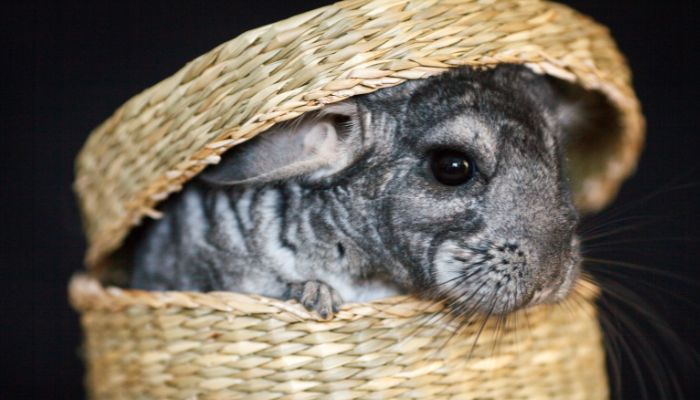Can Chinchillas Get Rabies?
Yes, chinchillas can get rabies. There are different strains of rabies that affect both people and animals, but the one that can infect a chinchilla is called hydrophobia, or waterphobia. The symptoms of rabies are often confused with other health problems, such as influenza and the flu, and sometimes they aren’t immediately obvious.

There are four stages of rabies: incubation, rage, paralysis, and death. Incubation is the most important and longest stage of the disease. During incubation, the animal is quiet and doesn’t show any symptoms. When it starts showing signs of illness, the person usually experiences a fever, headache, fatigue, and a stiff neck.
Rabies and Chinchillas
Rabbies in chinchillas are not a common occurrence, however, it is important to understand what causes rabies and how to prevent it.
Rabies is a viral infection that is spread by the bite or scratch of an infected animal. The rabies virus travels along nerve endings and eventually infects the brain.
The incubation period (time between infection and the onset of symptoms) varies from 3-18 months. Once symptoms appear the incubation period is shortened to 1-3 weeks. The clinical signs of rabies include hydrophobia (fear of water), paralysis, and aggression.
A chinchilla is not a particularly good host for rabies. The virus is very hardy and has been known to survive in the saliva of rabid chinchillas for up to 7 days. Rabid chinchillas can also transmit the virus to other animals.
The main method of preventing rabies is to vaccinate dogs and cats against the disease. Rabies vaccinations are available for dogs and cats, but it is important to know that they do not protect against the more aggressive strains of the virus. Rabies vaccinations can also be administered to other pets, such as ferrets, horses, and rabbits.
Symptoms of Rabies
The symptoms of rabies in Chinchilas are often misunderstood and the diagnosis is sometimes missed. Here is a list of symptoms of rabies in Chinchilas:
Sudden onset of fever, headache, nausea and/or vomiting.
If you see someone acting strange or uncoordinated and have bitten by an animal, call for help immediately.
If you or your pet has been bitten by a bat or other wild animals, you can receive rabies vaccine to prevent infection.
Vaccinating Your Chinchilla
Vaccinating chinchillas against rabies is a great idea, especially if you live in an area where wild animals roam free. However, vaccinating your chinchilla can be tricky and expensive, which is why many owners opt to skip the procedure.
If you decide to go ahead with the vaccination, there are two methods you can use: the oral method or the injectable method. Both methods are relatively safe and effective, although there are risks associated with each.
The Oral Method
The oral method is the most commonly used vaccine for chinchillas because it’s convenient and cheap. It’s also very easy to administer, since it involves simply feeding the vaccine directly to the chinchilla.
While the oral method is effective, it has some drawbacks.
For example
Chinchillas that receive the oral vaccine usually have a lower immune response than those that receive the injectable vaccine. Also, the oral vaccine does not work on pregnant or lactating females. Injecting the vaccine directly into the bloodstream also has drawbacks, such as causing the chinchilla to bleed.
Source: State Public Health Veterinarian
Preventing Rabies
Rabies is a deadly disease that is spread through the saliva of infected animals. It is a viral infection of the nervous system that affects the brain, spinal cord and the nerves.
You can prevent rabies in chinchillas by preventing them from getting bitten by other animals. To prevent rabies from spreading in your chinchilla population, you can make sure that you quarantine all of your chinchillas.
Quarantine Your Chinchillas
If you suspect that your chinchillas have been exposed to a virus like rabies, you should isolate them. You should keep them in a separate area of your home, and you should not let anyone else go into the quarantine area.
The quarantine period for chinchillas is 14 days. During this time, you should not let them go outside or let any other animal into the quarantine area. If you are able to do so, you can leave the chinchillas alone for an hour every day.
Clean Your Chinchillas
You should clean your chinchillas’ cages and feed them fresh fruits and vegetables. You should also make sure that you clean their drinking water frequently and replace it with fresh water.
Your chinchillas will need to drink plenty of fresh water throughout the quarantine period. You should also bathe your chinchillas at least once a week.
